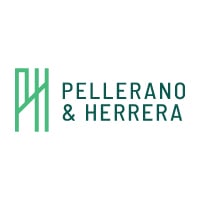

Director of coordination and monitoring of reform processes | Ministry of Public Administration (MAP) of Dominican Republic



Laura Virginia Díaz Gómez
Director of coordination and monitoring of reform processes | Ministry of Public Administration (MAP) of Dominican Republic
What are the most significant cases, projects, and/or transactions you and/or your legal team have recently been involved in?<?strong>
At the Ministry of Public Administration, I lead a multidisciplinary team responsible for translating strategic decisions into viable legal frameworks. Our work is part of the General Plan for Public Administration Reform and Modernization, with a strong focus on institutional redesign and administrative, legal, and financial efficiency.
One of the most relevant milestones has been the submission to Congress of the bill creating the Ministry of Finance and Economy, resulting from the merger of the Ministry of Finance and the Ministry of Economy, Planning, and Development. We also coordinated the merger of the Ministries of Education (MINERD) and Higher Education, Science and Technology (MESCyT), leading the drafting of the bill that regulates the new structure.
In addition, we have promoted reforms such as the creation of the Directorate for Social Development “Supérate” and the transformation of the Presidential Commission for Provincial Development Support into a decentralized body under the Ministry of Housing, Habitat, and Buildings (MIVHED). Each process has been supported by legal diagnostics and regulatory proposals oriented toward tangible results.
How do you manage legal aspects during periods of instability or crisis to ensure organizational resilience?
We apply the principles of administrative law as the foundation for institutional stability. We design legal frameworks that are clear, legitimate, and functional, allowing complex transitions without regulatory gaps, safeguarding rights, and ensuring continuity. Legality does not merely regulate change, it makes it possible and sustainable.
Artificial intelligence has long been seen as a potentially revolutionary technological change in the legal field. Has it had a significant impact on how your legal team works?
Yes. Artificial intelligence has influenced our legal practice, particularly in anticipating complex regulatory scenarios. We have adopted more analytical and preventive approaches, aligned with principles of digital governance. We reviewed three key legislative proposals: the Cybersecurity Law, the Personal Data Protection Law, and the Organic Law on Artificial Intelligence Systems. In each case, we proposed adjustments focused on algorithmic legality, transparency, and public accountability.
What is one cause, business-related or not, that you are passionate about, and why?
I am passionate about strengthening the relationship between the State and its citizens through the law. Administrative law is a structural legal tool to guarantee rights, limit power, and build institutional legitimacy. My cause is clear: to ensure public service becomes a space of trust, equity, and real responsiveness for people.
How does your team contribute to the overall business strategy? Can you share an example of a recent legal initiative that had a significant impact?
We translate political vision into enforceable norms. Every legal framework we design defines functions, strengthens institutions, and enables public policies with real impact. As a team, we provide structure, coherence, and legitimacy to reforms, so that institutions not only work better, but serve better. Because a reform is not just about changing how the State functions; it’s about transforming how people experience, perceive, and trust it.